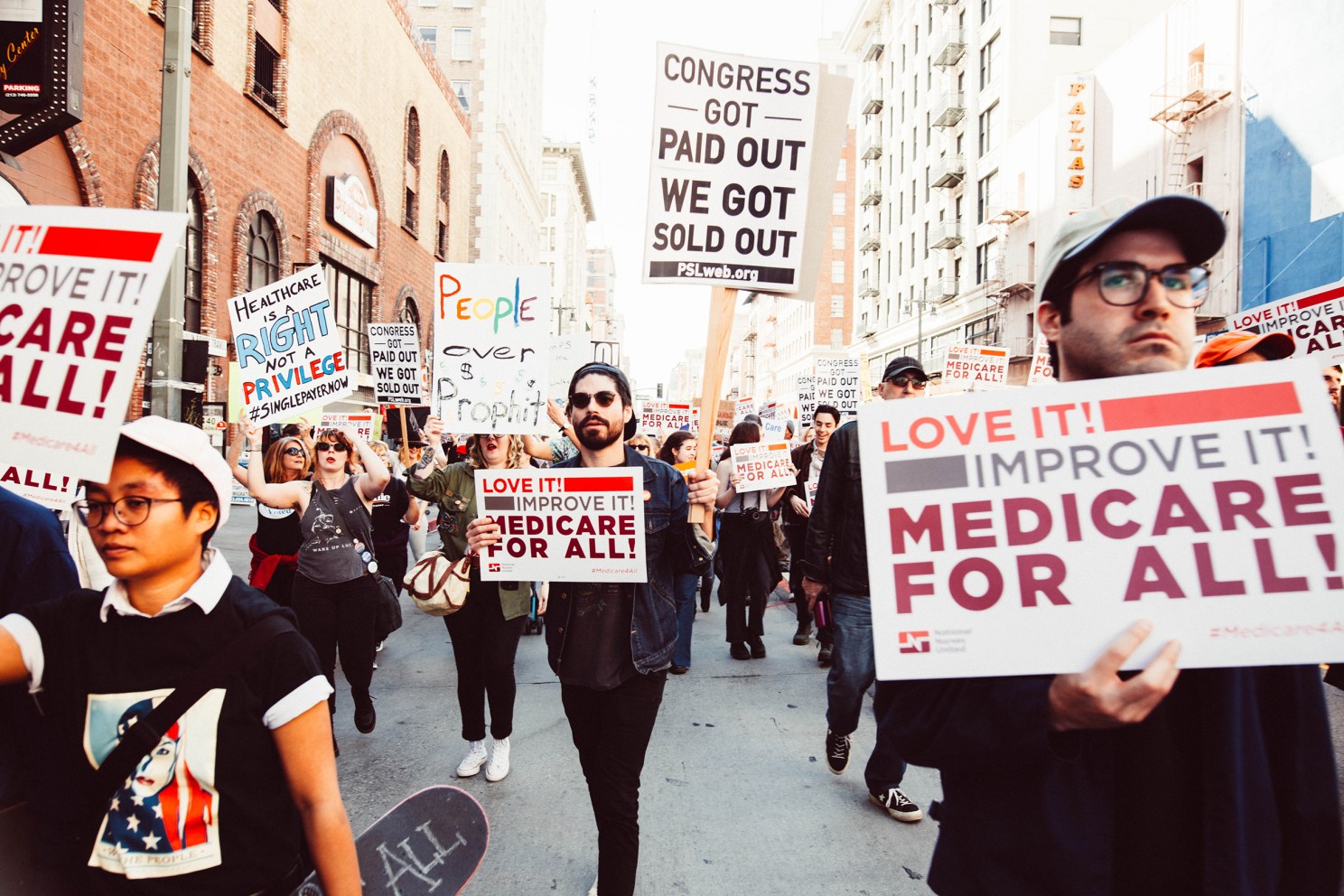Political polarization threatens health care reform

Activists march during a Medicare for all rally in Los Angeles, February 2017. Photo by Molly Adams/Creative Commons
The increasing polarization of healthcare politics poses a significant barrier to health care reform in the U.S., Robert Blendon, professor of health policy and political analysis at Harvard T.H. Chan School of Public Health, said in a Jan. 10, 2018 Harvard Political Review article. The article discussed left-wing health reform efforts since the 1940s, the adoption of Medicare in 1965, and current efforts to adopt a single-payer or ‘Medicare for all’ healthcare model.
According to the article, five years ago few considered a single-payer model possible. “Today, half of all Americans, almost two-thirds of Democrats, 15 U.S. Senators, and the majority of Democratic representatives support the plan. Although the idea is young, it has taken a long and arduous political path to popularity—and it may have an even longer path ahead.”
Read the Harvard Political Review article: Does Single-Payer Stand a Chance?
Learn more
Political polarization among voters likely to have significant effect on future health policy, including Affordable Care Act (Harvard Chan School press release)
Health reform prospects uncertain in Senate (Harvard Chan School news)





